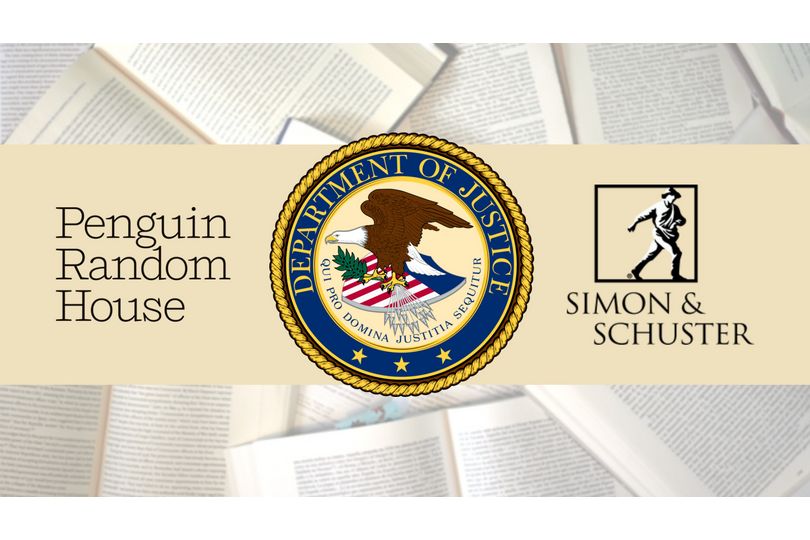Authors and book owners worry about diversity affected due to book publishing merger
on Aug 09, 2022

The largest antitrust trials hitting the publishing industry so far is unfolding in a Washington federal courthouse and according to The Department of Justice, the proposed merger announced in 2020 between Penguin Random House and Simon & Schuster would stifle competition.
What would a successful merger mean on a practical level for booksellers, authors, and others in the industry?
Although Penguin Random House is her publisher, Saira Rao, a Richmond-based author watches the case closely. She welcomes the government's pushback against the behemoth's attempt to grow even bigger and said it sends a message about the need for more diversity in the publishing industry, traditionally excluding writers of color like herself as well as making her books harder to sell.
"I have a white agent. Also, from the editors to the heads of the marketing, all of them are white," said Rao, who is South Asian American. "It's white, white, white, white, white."
Released in 2020, this study by major children's book publisher Lee & Low Books in collaboration with Boston University says that 76% of people in the industry identify as white (as compared to 79% in its last survey in 2015).
Authors Guild president Douglas Preston mentioned that reduced competition is likely to make the sector even less diverse. Not only it is bad for authors, but also for readers.
"Readers are served by a diverse set of authors and voices, especially authors from overlooked communities," Preston said. "Such authors don't make a lot of money, but have very important things to say."
Contrary to his claims, a spokesman for Penguin Random House said in a statement it was "committed to fostering diversity and providing BIPOC opportunities across the literary world, from editors to authors." This would even continue even after the merger.
Simon & Schuster said something similar in an emailed statement from a spokesperson: "Simon & Schuster is committed to working with our employees, authors, and the publishing community to make our company and our industry a safe and inclusive environment for all." He said that the company, merger or not, would continue "working toward being a publisher whose books and staff represent the breadth and depth of our diverse population."
Preston, whose own books have been published by Simon & Schuster, added that author advances are also likely to take a hit with more consolidation.
"Fewer publishers are bidding against each other for an author's work, the lower the advance," he said. "It's economics 101."
However, Penguin Random House contends the merger would increase author advances. The pre-trial brief, shared with NPR, stated: "As a pro-consumer acquisition, it allows Simon & Schuster and its editors and authors to be a part of PRH with its industry-leading supply chain, giving readers and booksellers across the world greater access to their books. Competition would be enhanced by enabling the combined company to offer increased advances and marketing support to authors. The competition will increase as a result of these investments."
A spokesperson for Penguin Random House said that due to legal constraints, the company could not share data on author advances since the last major publishing industry merger occurred between Random House and Penguin in 2013. Meanwhile, a spokesperson for Simon & Schuster said the company couldn't discuss author advances because they were at issue in the trial.
Some industry insiders agree with the publishers that the potential union of two of the five biggest publishing houses in the country is not a threat to a robust sector churning out a million titles a year.
"For me, it’s nothing but a blip in terms of the ability of the book publishing industry to meet the needs of readers," said Brian O'Leary, executive director of the Book Industry Study Group, providing supply chain research for around two hundred publishing industry members — including Penguin Random House and Simon & Schuster.
O'Leary shared that even if the judge rules in favor of the merger, book lovers still benefit from the titles which get released each year by thousands of independent publishers.
"There are plenty of outlets for writers and not just in the U.S. market, but worldwide," O'Leary said.
But like other critics of the acquisition, Josiah Luis Alderete, co-owner of a San Francisco-based independent bookstore Medicine for Nightmares, which stocks books by both indie presses and the Big Five publishing houses, said the consolidation will reduce all kinds of diversity and provide fewer opportunities for writers.
"It worries me," Alderete said. "It's gonna be a lot less people deciding what's what." Also, he wouldn't be surprised if the merger goes through anyway. "This is America, money talks."



.jpg)






.jpg)

.jpg)
.jpg)
.jpg)

.jpg)
.jpg)










Sorry! No comment found for this post.